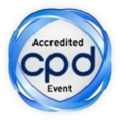
Biography
Biography: David W. Moskowitz
Abstract
Perhaps the most overlooked resource for global public health is the retail pharmacist. They are located in the smallest, remotest villages. They are comfortable with computers, and most are linked to the Internet. They provide affordable medications and trusted medical advice to everybody in the village. Their stores are well-known anchors in the community. They pay extraordinary attention to detail. They have a strong business sense. They deliver excellent customer service. If they don't, they soon go out of business. Genomics, the science of which genomic variants cause disease, discloses the earliest steps in disease causation, making reversal of disease possible. For example, the right ACE inhibitor at the right dose can reverse early stage diabetic and hypertensive nephropathy. In principle, 90% of chronic kidney failure could be prevented. The remaining 10% of kidney patients could get a transplant, and the world could be dialysis-free. Kidney failure is exploding in the developing world, where there are few dialysis machines and no money to pay for dialysis. Nor do these countries have enough doctors and nurses to deliver public health. Pharmacists could easily identify diabetic and hypertensive patients among their clientele, educate their customers about the existence of a treatment to avoid dialysis, communicate by email with a Disease Management company like GenoMed, deliver an agreed-upon dose of ACE inhibitor to the patient, monitor the patient's blood pressure, and titrate up the dose of ACE inhibitor as needed. Since the patient has to purchase the ACE inhibitor at the pharmacy anyway, there's no reason why the pharmacist couldn't measure the patient's blood pressure with an automated BP cuff and suggest a new dose of ACE inhibitor, with input from the Disease Management company. Retail pharmacists could perform this service much more easily than a mail-order pharmacy. It would create a significant new revenue stream for the retail pharmacist.

